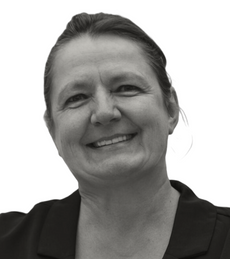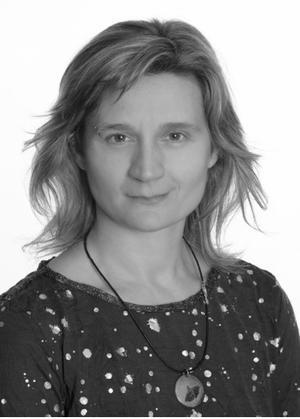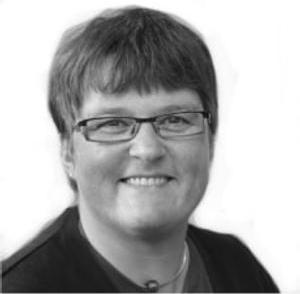COUNCIL MEMBERS
Our Council is made up of 10 members: President, Vice-President, Treasurer, Publications Officer, Elected Member, three Independent Members and our four Section Chairs (Animal, Plant, Cell and OED).
Find out more about them below:

GUDRUN DE BOECK - PRESIDENT
Gudrun De Boeck is a full professor at the University of Antwerp, Belgium, and currently leading the ECOSPHERE research group which aims to study both aquatic and terrestrial ecosystems that are continuously challenged by natural and anthropogenic stressors. She is also chair of the Institute of Environment and Sustainable Development (IMDO) of the University of Antwerp which promotes (and teaches) interdisciplinary science leading towards a more sustainable world. ECOSPHERE combines expertise in fundamental and applied research in aquatic ecology and in aquatic and terrestrial ecotoxicology and ecophysiology. Our research group aims to underpin environmental management decisions with fundamental knowledge at different levels of organisation, from cell to ecosystem. Our main research themes are 1) Integrated water management; 2) Water and soil risk assessments; 3) Macro- and micronutrients for healthy ecosystems; 4) Bioavailability and accumulation of macro- and microcontaminants; and 5) Physiological and molecular mechanisms of stress and toxicity of macro- and microcontaminants.
Her own research falls under this last research theme and focuses on effects of environmental factors on the fitness, energy metabolism and iono- and osmoregulation of fish. Studies are comparative in nature and species studied include freshwater and marine teleosts and elasmobranchs.
You can find more info on https://www.uantwerpen.be/en/staff/gudrun-deboeck/ and https://www.uantwerpen.be/en/research-groups/ecosphere/

JOHN LOVE - VICE PRESIDENT
His PhD was divided between laboratories at the University of Edinburgh and the Marine Biological Association in Plymouth, researching Ca2+ signalling in the early embryo of brown algae. This passion for primitive plants is the foundation of his interest in microalgae as an alternative energy source. He obtained his BSc in Biology from the University of St Andrews.
John joined the SEB as a postgraduate student. As a biologist he finds the cross-disciplinary reach of the SEB particularly appealing; as a passionate educator, he champions the SEB in its engagement with students and the opportunities it offers to early career scientists.


ROSS SOZZANI- CELL SECTION CHAIR
Ross Sozzani holds a Ph.D. in genetics and molecular biology and a Master of Science degree in biological science from the University of Pavia, Italy. She is a professor and University Faculty Scholar in the Plant and Microbial Biology Department at North Carolina State University. Her research focuses on the molecular mechanisms that regulate growth and development of multicellular organisms. Her interest is to use large biological data and develop algorithms or models to understand biological systems and relationships at multi-scale level and translate this knowledge to engineering plants with enhanced agronomic function. Currently, she serves as the Director of the Plant Improvement Platform for the N.C. Plant Sciences Initiative, she is the Deputy-Director of the NSF Science and Technology Center for Phosphorus Sustainability (STEPS), and she leads an NSF AccelNet program aimed at accelerate integration of engineering, life science, and agricultural research to prepare the next generation of U.S. researchers for multiteam international collaborations.

GEORGE LITTLEJOHN - PLANT SECTION CHAIR
George is Associate Professor of Plant and Fungal Biology and Associate Head, School of Biological and Marine Sciences at the University of Plymouth. He has a long association with the SEB as a member, giving his first scientific talk at an SEB meeting, receiving the President’s Medal for Education and Public Affairs in 2014 and Chairing the SEB+ Section from 2015-2018.
George’s lab focuses on plant-pathogen interactions and fungal biotechnology. He has an ongoing interest in advanced microscopy and minimally invasive imaging of plants. Current projects in the lab explore the roles of the circadian clock and chloroplasts in rice blast disease and nematode diseases of scented narcissi.

SHEILA AMICI-DARGAN - OED TRUSTEE

ROBYN EMMERSON- EARLY CAREER RESEARCHER TRUSTEE
Robyn is a postdoctoral researcher at the University of Birmingham, interested in plant epigenetics and environmental responses. Her current work focuses on understanding why mutating some plant epigenetic pathways results in reduced transgenerational fertility.
Robyn obtained her PhD in 2023 from the University of Essex where she investigated how plants respond to naturally fluctuating light at a physiological and epigenetic level.

DIANA SANTELIA - PUBLICATIONS OFFICER
She is a molecular plant physiologist interested in carbohydrate metabolism in plants.
Here at ETH, she is a senior scientist and she leads the research group of Plant Molecular Physiology. Her lab investigates the pathway and regulation of starch and sugar metabolism in the photosynthetic cells of green leaves (i.e. mesophyll and guard cells). They aim at understanding the influence of carbohydrates and their derivatives on plant productivity and survival. They use Arabidopsis thaliana as a working model, but we are progressively extending our research to the economically relevant crops barley and tomato as a proof-of-concept for future improvement programs of crop water use efficiency, yield and stress tolerance.
She graduated from the University of Milan, Agricultural Sciences, in 2001. She did a PhD in molecular plant physiology at the University of Zürich (2002-2006). She then moved to ETH Zürich (D-BIOL) as a post-doctoral scientist, working on starch degradation in Arabidopsis leaf chloroplasts (2006-2011). In 2012, she returned to the University of Zürich as an independently-funded group leader and started to work on starch and sugar metabolism in guard cells and in response to abiotic stress. In 2019, she was appointed as a senior scientist at ETH Zurich, Institute of Integrative Biology (D-USYS). She habilitated in summer 2019 in the area “Molecular Biology”. As a lecturer, she teach molecular biology to the 4th semester Food Science and Environmental Sciences students.

TRACY LAWSON - TREASURER
Tracy Lawson is a professor of plant biology and director of the Plant Phenomics Lab at the University of Essex. She earned her BSc in Applied Biology from Liverpool John Moore's University, and went on to earn her doctorate from the University of Dundee.
Tracy is a plant physiologist specialising in photosynthesis, stomatal behavior and plant water-use efficiency. She is an expert in infrared gas exchange analysis, chlorophyll fluorescence, and plant imaging techniques. For the RIPE project, she is manipulating photosynthesis via Calvin cycle enzymes. She is also helping with the physiological analysis of transgenic plants.
Tracy's work has been published in Plant Physiology, Journal of Experimental Botany and other publications.
Tracy Lawson
Plant Phenomics Lab
University of Essex
Wivenhoe Park,
Colchester
CO4 3SQ
United Kingdom
Website: https://www.tlawsonlab.co.uk/

JI YOUNG PARK INDEPENDENT MEMBER
